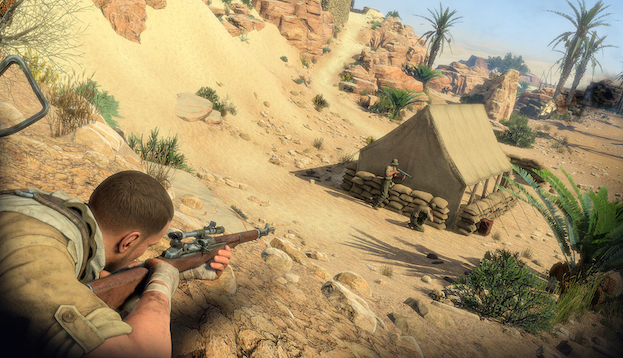In today’s video game business, bad review scores can be a deathknell for a product, or, at the very least, a factor that could result in the cancellation of a bonus for a developer.
However, Jason Kingsley, the owner of the development team at Rebellion, who previously released the action/shooter Sniper Elite III last year, believes that there is a shift coming out there, even if some traditional conventions stay in place. “There’s a pressure to get the product out there,” he explained, speaking with GamesIndustry International. “But the problem is that getting a bad product out on time can, and will, damage your reputation as severely as getting a good product out very late. It’s the devil and the deep blue sea.
“It will have a short-term effect. I don’t think it’ll take very long for people to think, ‘Company X released a faulty product and screwed us over.’ I’m not talking ‘faulty’, as in a few bugs and idiosyncrasies, but something that, on the face of it, is horribly broken. I think we can see it when something really shouldn’t have been released. It will have a short-term effect, and I think we’ll see changes in the way games have to be made as a result.
“It also damages games in general, because it convinces people that they’re all buggy and broken, and they paint every game with the same brush. You can lose your consumer that way,” he said.
That said, such products can pave the way for lesser-hyped games to shine, like Rebellion’s own Sniper Elite III. Said Kingsley, “Every Sniper Elite game we’ve released has debuted at number one, and everybody says, ‘God, that’s unexpected. It’s a sleeper hit. But it’s not really a ‘sleeper hit’ because it sold as well as projects that cost ten times the amount to develop and probably had 20 times the marketing budget. From a business perspective, it’s a slam-dunk certainty. And that’s interesting.”
However, what’s really surprising is how some disappointing scores actually didn’t effect the game’s performance, especially on Steam, where it’s sold over half a million units. “Nobody here ever bothers about Metacritic,” said Kingsley, speaking about the critic-based score site, which is consistently loaded with negative reviews from users. “We think of it as irrelevant, quite frankly. We only concentrate on what the users think, and every aggregate user score has been significantly higher than the aggregate professional score. We care about the people who are spending their money, and whether we’re happy that we’ve made a good game. The acid test isn’t somebody’s abstracted number.
“Professional reviewers have a very difficult job, because they cannot see a game from the perspective of somebody who’s paid money for it. Because that’s their job. Your average player who buys the game is almost obligated to try and enjoy it. They’re hoping this thing they’ve paid for is good, and if it’s crap they’re very, very disappointed indeed and they probably won’t buy another game from you. I’m not saying professional reviewers try not to enjoy games, but that’s what they do during the week as a profession, with all the pressures and deadlines that come with it.”
When it comes to feedback from games, online social media plays a huge part, according to Kingsley. “The greatest value for us as digital publishers, if you like, is in embracing YouTube and Twitch and the normal people being seen playing our games,” he said. “It lets you see what the gameplay is like, and make a decision on whether you like that and want to play it. You might not actually care whether it didn’t seem totally original to one person, or that the story was a bit crap.
“That new approach has taken over.”

